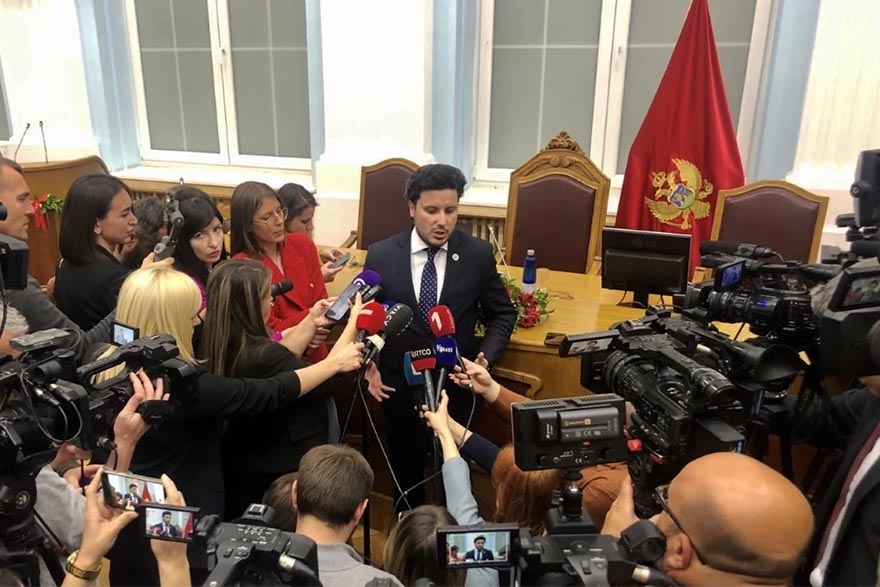In a session of Montenegro’s Parliament, a minority government led by Prime Minister Dritan Abazović was voted in, ending the three-month technical mandate of Prime Minister Zdravko Krivokapić, which lost a vote of no confidence on 4 February.
The new parliamentary majority that voted for the government had previously elected Danijela Đurović as president of the assembly, unblocking the work of parliament after almost three months.
45 deputies out of the total of 81 in the Montenegrin parliament voted for the new government. Three representatives of the opposition Social Democrats were against.
Abazović ‘s cabinet was supported by 16 members of the constituent government: the Civic Movement URA, the pro-Serbian Socialist People’s Party (SNP), the Social Democratic Party (SDP) the national parties of Albanians, Bosniaks and Croats, and 29 members of the Democratic Party of Socialists (DPS) of president Milo Đukanović which has no representatives in the new government.
EU High Representative for Foreign Affairs and Security Policy Josep Borelj congratulated Abazović on the election of the new 43rd government.
“We congratulate Prime Minister Abazović on Montenegro’s new government. We look forward to working together to make tangible progress on Montenegro’s path to the EU. Montenegro is a trusted partner, fully aligned with EU foreign policy”, tweeted Borelj according to Radio Free Europe.

The choice of Dritan Abazović to lead the Montenegrin government was also welcomed by European Commissioner for Enlargement Olivér Várhelyi.
Emphasizing that he is looking forward to future cooperation with the new Montenegrin government, Várhelyi said that he expects it to implement reforms in the accession process, focusing on the rule of law, the economy and the green agenda, especially under the European Commission’s economic and investment plan.
Prime Minister Abazović emphasizes that the goal of the new government is to unblock Montenegro’s process of European integration and the filling of leading positions in the judiciary.
The sessions were not attended by deputies of the Democratic Front and the Democrats, who strongly oppose a minority government supported by the DPS.
Those parties, together with Abazović’s URA movement and the SNP, had governed since the August 2020 elections, when they pushed the DPS into opposition after three decades in power. A year and a half later, that parliamentary majority disintegrated due to political differences, and its smallest member, Abazovic’s URA, entered a process of forming a minority government with the support of Djukanovic’s DPS.
The Democratic Front and the Democrats therefore accuse Abazović of betraying the will of the electorate, and demand new elections.
Main photo: Luka Zeković